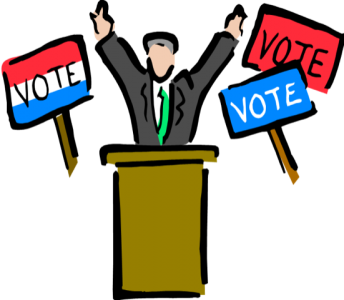Widgetized Section
Go to Admin » Appearance » Widgets » and move Gabfire Widget: Social into that MastheadOverlay zone
Federalizing Elections
The views expressed are those of the author and do not necessarily reflect the views of ASPA as an organization.
By Charles Mason
October 11, 2020

The American experience is an exceptional experience. America is a unique nation in the world. One of our most significant accomplishments as a people is our right and responsibility to vote for and elect our local, state and federal leaders. Our vote is the voice of the people. Once elected, these leaders are called upon to perform their lawful duties in government. They are tasked to do for us collectively what we cannot do as individuals.
However, that right and responsibility comes with a cost. In the American system, power is fractured for a good reason. Yet, the grounds for that reason have been lost over the years. Some would say this was a deliberate action; nonetheless, it has helped educate America out of its foundational ideas into its now current two-party agendas.
From the people to the legislators comes the mandate to govern. This mandate is conducted through our elected and non-elected representatives; this is done at the federal and state levels. These officials fulfilled their duties by regulating citizens and their disputes by the rule of law. Some go beyond the law, as is the case in many municipalities during this pandemic. As public administrators, we know the federal government has limited power over the fifty states and that state governments control their citizens and visitors within their state boundaries.
Because state and local representatives are nearer to the people and their raw energy, state government officials are by far more approachable to their citizens’ needs and wants than the federal government. Just take, for example, the legalization of marijuana. Whereas 11 states have now legalized recreational marijuana and another 33 states have legalized medical marijuana, the federal government has done extraordinarily little to address these issues other than to stay the course.
By the very nature of the marijuana movement, we can see the pattern of where the majority of the states are going. The science is not there yet to tell us whether this action is right or wrong; it continues to be seen if this course of action is suitable for the nation. There have been shown some medical applications for the drug, however, not at the level of some promoting marijuana as the do-all elixir.
Those who promote the marijuana agenda may do so because they see the plant as natural and believe by its very nature, marijuana should not be made illegal. Others may have a more monetary approach to the issue.
Still, this question goes unanswered at the national level. Some want action now from their federal officials; they have passion for their ideas. This is where the fractured system works best. It provides for delays as science programs are conducted and administered. Therefore, the fractured power system we now have limits the power that can be placed into the hands of one individual. Consequently, federalizing the voting system will take away a founding pillar of our democracy.
One non-elected official controlling the voting booths in all 50 states is a disaster waiting to happen. Cooler heads must prevail. Therefore, as public administrators, we must embrace a little disorder to safeguard the liberties and freedoms of those we serve. Creating and promoting bureaucracy for the sake of centralizing power and authority into fewer and fewer hands does not bode well for the republic and the freedoms we now share.
Hitler drew all authority and power to the central government, consolidating power into his office and those who swore allegiance to him as an individual, not for the country they served.; his non-elected officials controlled every part of the federal government down to the local bureaucrat.
I am sure small aspects of our voting system could be enhanced; nevertheless, the answer is not to control every system aspect. As an alternative, we should inspire the citizens to make enhancements for themselves. Elitism at the federal level is not the answer to our problems today. Our system is a method of many voices and the solutions coming down from on high are not always the right one.
Many future laws will be proposed to protect the citizens’ right to vote; however, these laws will only establish a more substantially susceptible electoral process by taking the processes out of the people’s hands. Let us not be party-line public administrators for the purpose of reshaping the character of polling day into a one-size-fits-all style. If lawmakers create a more streamlined process, they may be right. The only problem is they will be steamrolling away your democracy for a more totalitarian system of governance.
Author: Charles Mason MPA is a Doctoral Candidate at Walden University in Public Policy and Administration with a Specialization in Criminal Justice. He has over 30 plus years in local law enforcement, state corrections and military service. He is currently a leadership and development coach at Mason Academy. He can be reached at [email protected].
Twitter: https://twitter.com/DRCharlesMason



Brynne VanHettinga
October 12, 2020 at 4:51 pm
This year in particular I am especially grateful that elections are being run by the states and not the current dysfunctional federal kakistocracy.
Thank you for your service and good luck with the Ph.D.